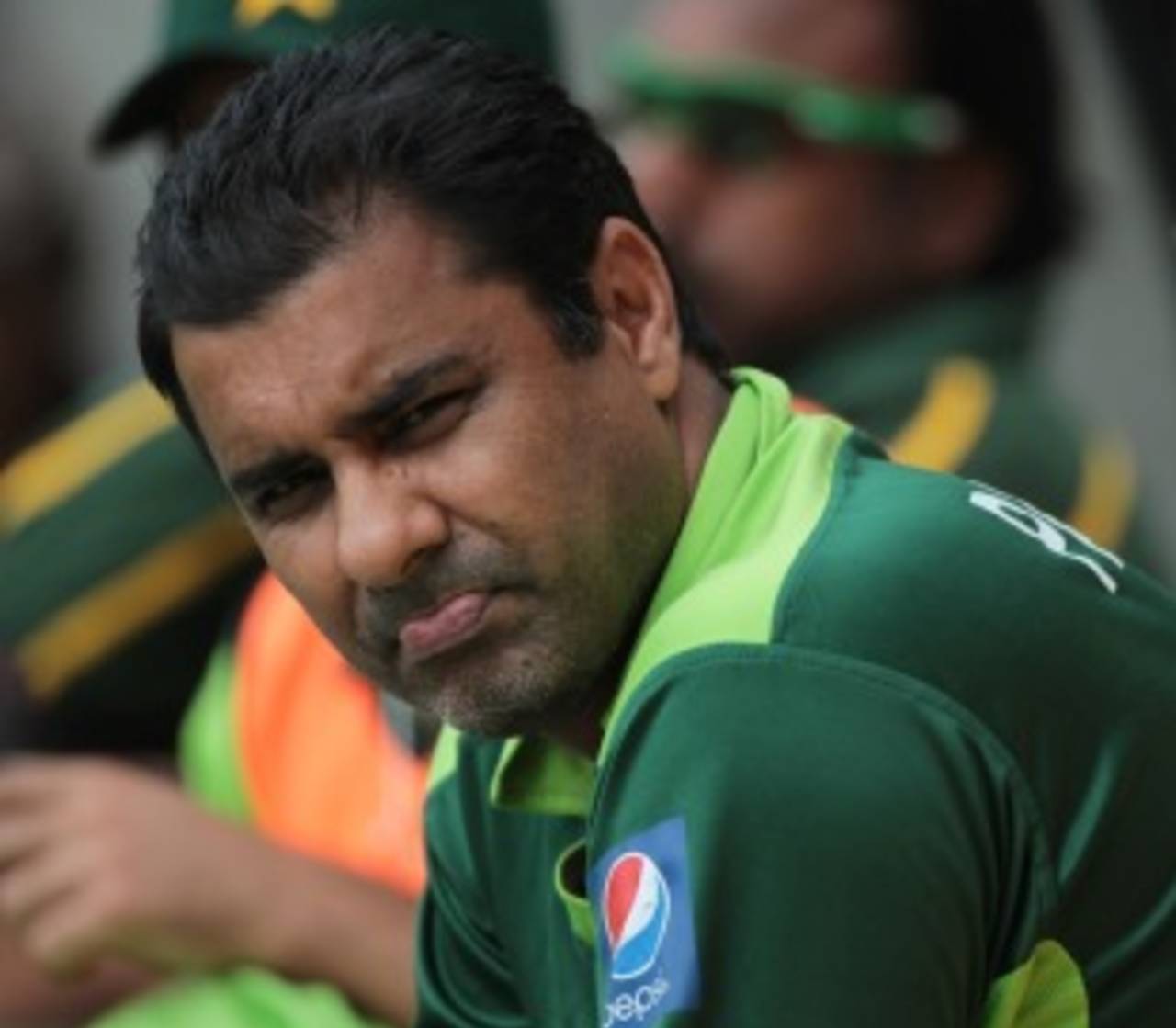It sometimes feels as if exits in Pakistan cricket, forced, manufactured or none of the above, only occur so that subsequent returns are possible. That is one way of looking at the re-appointment of
Waqar Younis as the coach of Pakistan on Tuesday, over two years after he resigned.
But because it is Waqar, at least a bit of the cynicism can be shed. If one iron-clad rule of public exits is that one should go when people are asking why, and not why not already, then Waqar was probably too much of a stickler for it last time round.
It really felt, in August 2011, that he and Pakistan were in the middle of something special. They had negotiated a particularly turbulent 18 months. Performances and results with a redrawn team and ethic were assuming a kind of valour.
So deep did his imprint feel at the time that it was impossible to ignore it in Pakistan's series wins against Sri Lanka and, memorably, England, even though they came after he left. If that sounds like a slight to his interim successor Mohsin Khan, well, then maybe it is.
It felt even more an incomplete affair because it was never clear why he left. Personal reasons he plumped for, including never clearly explained health issues. A very public falling out with Shahid Afridi could not be entirely ruled out as a factor, and later it emerged there were financial compulsions.
Waqar had always privately maintained that employment with the Pakistan Cricket Board was a loss-making proposition, given how much he earned as a commentator otherwise. In all, a wide gamut of smallish reasons snowballed into an early, rancour-free but unsatisfactory exit.
Why did Waqar work? The secret of coaching, as becomes more evident with every arrival and departure, is that there is no one secret of coaching. Some work better if they micro-manage obsessively. Others produce better results when shorn of regimented control. No method works forever.
Waqar did because despite being a big-name former player - and they do not come much bigger - he brought a little humility to his role. He once expanded on his belief that one of the things Pakistan needed in a coach was a big name: "In our place, players are sometimes bigger than the game, that is a reality and a tradition. To suppress that, you need a bigger name from on top."
It is an interesting way to look at coaching because what he did was to both use and subvert that. Consider some of the younger players at the time. How could they not respond to a man they may have idolised growing up? Especially when he showed that he was willing to sweat it out on the field with them and take a back seat to them off the field.
Sure, he did not quite dance with Afridi, then the ODI captain, but with Misbah-ul-Haq as the leader of the Test side, there was cohesion and deep respect. That was, and will again be, crucial.
But returning now? Pakistan do not progress or regress linearly like most sides. They have done neither definitively since Waqar left but it is also not as if they have been in stasis. The dynamics to which he returns have changed. The age is no longer what it was. Pakistan do not require rebuilding as they did after the 2010 tour of England. They need to develop.
Off the field, not only is a different administration in place but a vastly rejigged management set-up. Waqar generally liked to be in control. Now he will necessarily have to cede some space to Moin Khan, who, short of captaining the side himself, is in charge of pretty much everything as manager and head selector (through committee, he is also the man who chose Waqar).
That could be fun to watch because the pair have not always got along smoothly. Waqar also believes the fewer people there are jostling for influence in Pakistan's dressing rooms, the better the side performs.
There will be benefits. Both Umar Akmal and Ahmed Shehzad had significant spurts of development in Waqar's time, as members of the set-up if not conclusively as batsmen. He returns with both considerably advanced. They are in form, confident and established. From here Waqar needs to ensure they become the men around whom Pakistan's batting revolves.
In need of his utmost attention though is the fast bowling. Mohammad Akram is an honest, hard-working man who has somehow overseen a rapid decline in fast bowling, encapsulated pointedly by Junaid Khan's inexplicable recent regression.
Whatever else he may or may not achieve, it is impossible to imagine Waqar not revitalising those resources. Given the cruciality of pace to Pakistan's fortunes - nobody knows it better than Waqar - that prospect alone may be enough to justify his return.
Osman Samiuddin is a sportswriter at the National. @sprtnationaluae
